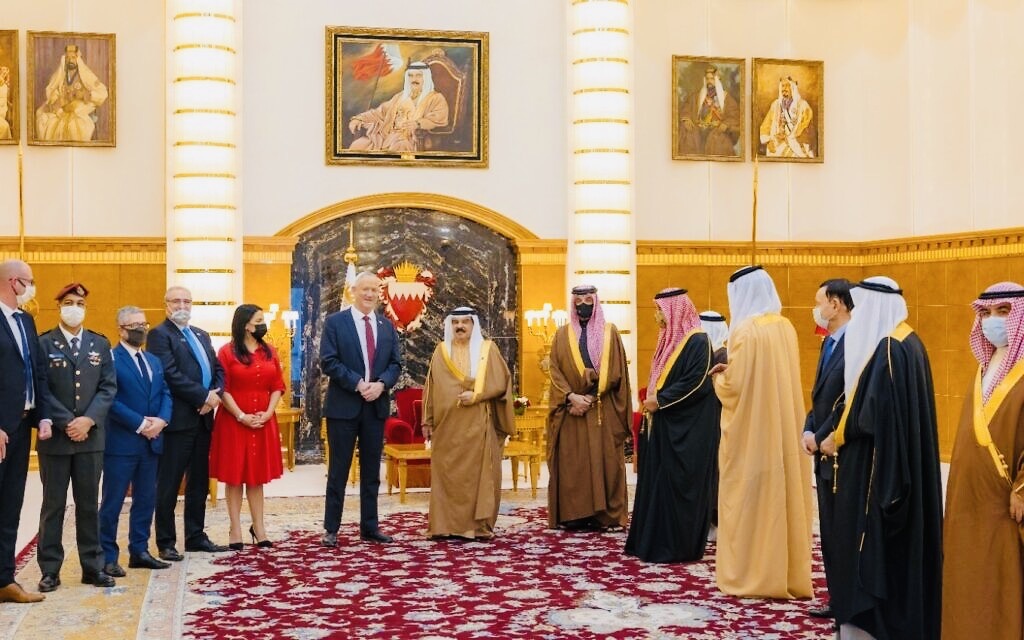Israel has signed security agreements with two pro-Western Arab states in the past few months, signalling the emergence of a new and potentially important strategic alliance in the Middle East.
On November 24, Israel and Morocco signed a memorandum of understanding in Rabat, the first of its kind between Israel and an Arab state. On February 4, Israel and Bahrain signed a similar accord in Manama.
A few years ago, developments of this magnitude would have been inconceivable, given Israel’s still unresolved conflict with the Palestinians and its occupation of the West Bank.
But since Israel’s historic rapprochement with the United Arab Emirates, Bahrain, Morocco and Sudan under the diplomatic umbrella of the 2020 Abraham Accords, there has been a sea change, shifting regional attitudes to Israel to some degree.
Facing a common adversary in Iran, the preeminent Shi’a power in the Middle East, Israel, Morocco and Bahrain have banded together in a spirit of pragmatic cooperation, Israel’s ongoing dispute with the Palestinians notwithstanding.
The Palestinian issue is still a serious problem, representing a real barrier to Israel’s full integration into the Middle East. Certainly, it inhibits certain Arab countries, notably Saudi Arabia, Qatar, Kuwait and Tunisia, from reaching an accommodation with Israel. Until a two-state solution is achieved, these nations are most likely to reject the idea of normalizing relations wth Israel.
In the meantime, Israel is building bridges to Arab nations willing to set aside their pro-Palestinian sensibilities.
The reasons are clear.
The Iranian nuclear program, the subject of current negotiations between Iran and the major powers in Vienna, is a source of deep concern, not only to Israel but to most of its Arab neighbors.
Iran’s arsenal of long-range ballistic missiles compounds their anxiety. Several days ago, Iran unveiled the Khaibar missile with immense fanfare. Iranian officials claim it has a range of 1,450 kilometres and can reach targets anywhere in Israel, Bahrain and the United Arab Emirates.
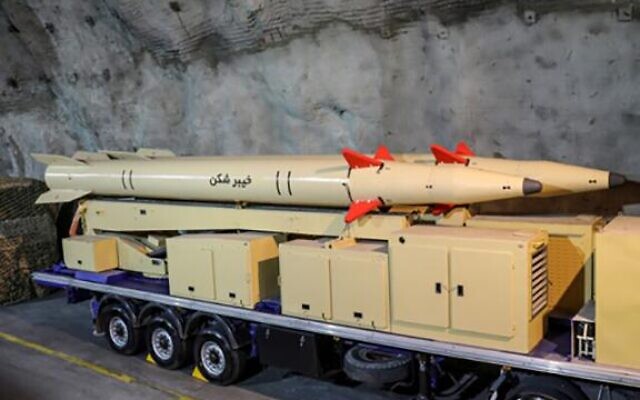
Tehran’s support of Houthi rebels in Yemen, one of Iran’s regional surrogates, is troubling as well. Since the start of this year, Houthi forces have fired several missiles at the United Arab Emirates, which supports Saudi Arabia’s military campaign in Yemen to dislodge the Houthis.
Taken together, these factors help build Israel’s case that a coalition of nations must resist Iranian aggression and its inroads in the Middle East.
Israeli Defence Minister Benny Gantz got the ball rolling late last year, when he and his Moroccan counterpart, Abdellatif Loudiyi, signed a memorandum of understanding designed to facilitate intelligence cooperation, Israeli weapons sales to Morocco and joint military drills. Gantz described it as “highly significant.”

Ten days ago, Gantz flew to Bahrain through Saudi Arabian airspace, which until quite recently was off limits to Israeli aircraft. He was accompanied by, among others, the commander of the Israeli Navy, David Salama.
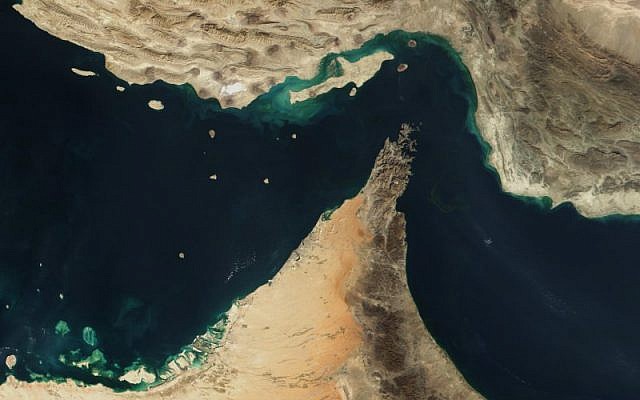
In Manama, which lies just 200 kilometres from the coast of Iran, Gantz and Bahraini Defence Minister Abdullah bin Hassan al-Nuaimi signed a memorandum of understanding. “Our formal relations allow us to work together against shared threats,” he said in a reference to Iran.
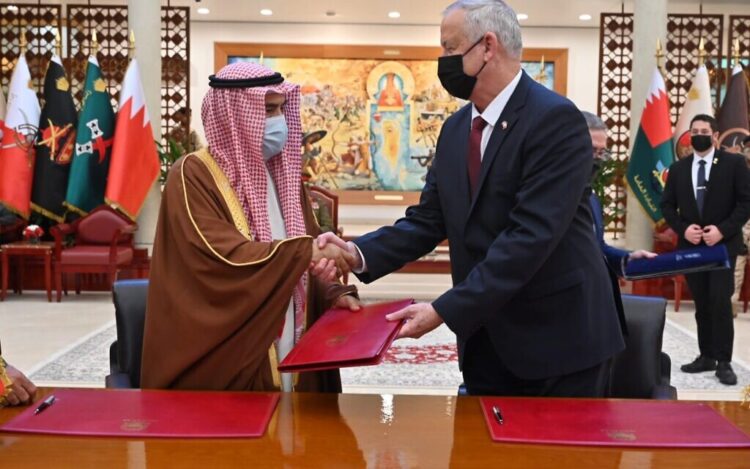
Gantz disclosed that Bahrain has expressed an interest in buying Israeli “air defence systems” — anti-missile and anti-drone warning and interception systems.
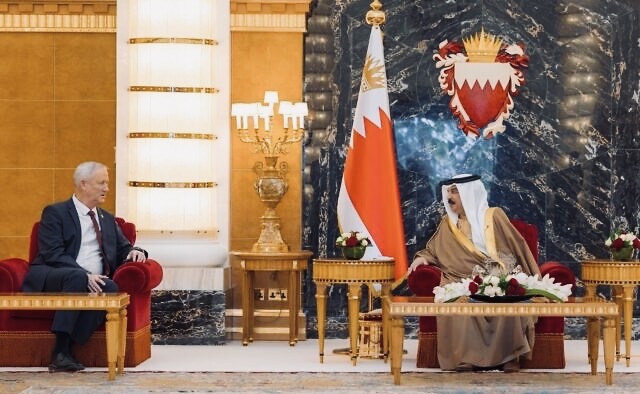
During his visit, Gantz met King Hamad bin Isa al-Khalifa and Prime Minister Salman bin Hamad al-Khalifa and spoke to Admiral Brad Cooper, the commander of the U.S. Fifth Fleet, which has been stationed in Bahrain since the 1990s.
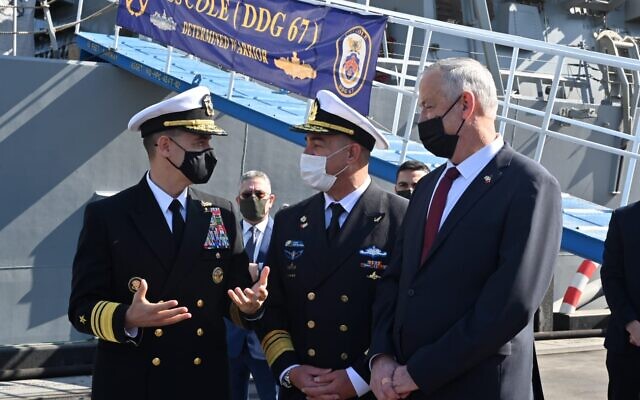
Israeli Foreign Minister Yair Lapid visited Bahrain recently and also posed for photographs alongside vessels of the Fifth Fleet.
As Gantz toured Manama, Israeli ships took part in a U.S.-led naval exercise in the Red Sea comprising of dozens of nations.
According to reports, Israel is ready to send a naval officer to Bahrain to serve as a liaison to the Fifth Fleet. If the appointment goes through, it would be the first time an Israeli military attache would be posted to an Arab country.
Israel has never sent such officials to either Egypt or Jordan, which have been formally at peace with Israel since 1979 and 1994 respectively.
Late last month, Isaac Herzog made history when he became the first Israeli president to pay an official visit to the United Arab Emirates. He, too, spoke about the threat that Iran poses to its neighbors.
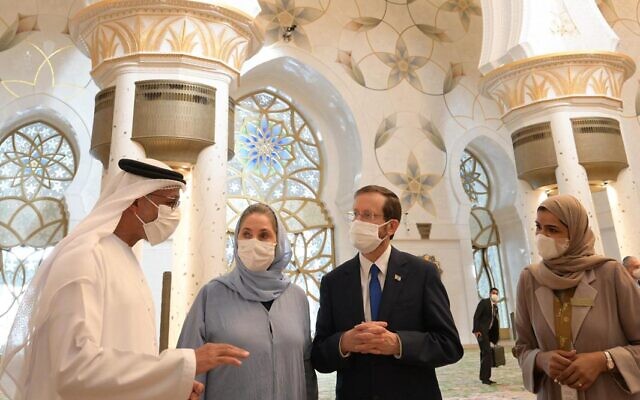
“There are only two alternatives for this region,” he said in Abu Dhabi. “One is peace, prosperity, cooperation, joint investments and a beautiful horizon for the people. Or alternatively, what Iran is doing, which is destabilizing the region and using its proxies to employ terror.”
Israeli Prime Minister Naftali Bennett visited the United Arab Emirates this past December. Although he and his hosts focused on economic and trade issues, Iran was doubtless a topic of conversation in their discussions.
On February 14, Bennett paid his first visit to Bahrain.
Two weeks ago, the Israeli media reported that Israel was considering the possibility of selling the Iron Dome anti-missile system to the United Arab Emirates. It remains to be seen when or whether the United Arab Emirates will emulate Morocco and Bahrain and sign a security memorandum of understanding with Israel.
There have been reports that Saudi Arabia has purchased the Iron Dome, but Israel has denied them.
Looked at in perspective, Israel is laying the groundwork for a new constellation of nations to confront Iran and its proxies throughout the Middle East. At the very least, Israel’s closer proximity to Iran would be highly useful should the Israeli government decide to strike Iran’s nuclear facilities.
Iran is acutely aware that the geopolitical dynamics in the region are changing to its disadvantage.
